
loe.org

An ambitious Plastics Treaty that controls plastic production and eliminates the use of toxic chemicals would begin to rectify the environmental injustices experienced by Indigenous Peoples.
As a community health aide in Nuiqsut, Alaska, when nearby oil and gas operations were flaring, I would see a stream of people with respiratory issues. Before I was done with one patient, I had another coming in. It got to the point where we were up all night to help people breathe.
Within a single lifetime, Indigenous communities in the Arctic have seen the rates of illness skyrocket due to toxic pollution caused by the interlinking of chemicals, plastics and the climate crises. Respiratory disease, cancer, reproductive disorders and many other health disparities are threatening our very existence.
This April 23-29, the world’s nations will gather for the Plastics Treaty negotiations in Ottawa, Canada. An ambitious Plastics Treaty that controls plastic production and eliminates the use of toxic chemicals throughout the plastics life cycle is critical to protect human health and the environment. This would begin to rectify the environmental injustices experienced by Indigenous Peoples and benefit fence-line communities and all of us who are exposed to toxic chemicals from plastics.
Respiratory disease, cancer, reproductive disorders and many other health disparities are threatening our very existence.
The Plastics Treaty talks aim to finalize negotiations by the end of the year. Alaska and its inhabitants can’t wait. The Arctic is warming nearly four times faster than the rest of the world, and In 2019, over 70 of 200Alaska Native villages were facing environmental threats from flooding, thawing permafrost, and erosions. Alaska is home to 229 federally recognized tribes, and their cultures and livelihoods are critically under threat from the linked threats of climate change, plastics, fossil fuels, and petrochemicals.
Plastics are made from fossil fuels and chemicals, and the oil and gas industries are betting on plastics to grow their markets. Left unchecked, the petrochemical industry is projected to account for 50% of oil consumption by 2050. More plastics means more oil and gas and more health disparities for Indigenous Peoples.
Fossil fuels extracted from Alaska, often near Indigenous lands, expose Indigenous Peoples to toxic chemicals. When plastic waste is disposed around the world, the waste and its toxic chemicals are carried by atmospheric and oceanic currents to the Arctic, which acts as a “hemispheric sink” concentrating the toxic pollutants. This source-and-sink cycle results in increased health problems and food insecurity for Indigenous Peoples, as traditional food sources become scarce or contaminated. Earlier this year, microplastics were detected for the first time in the tissues of the Pacific walrus of the Bering and Chukchi Seas, an animal critical to the traditional diet of Indigenous Peoples of this region.
More plastics means more oil and gas and more health disparities for Indigenous Peoples.
As the First Peoples of Alaska, we have been stewards of our lands, airs, and waters. Now our People are being exposed to toxic chemicals without our consent. These are burdens we did not create but we face some of the most drastic changes here in the Arctic.
A Plastics Treaty aimed at protecting our health and healthy environments will be a vital step in the drive to advance human rights and healthy communities. We must put an end to toxic plastic production and stop producing toxic petrochemicals while the planet is already overwhelmed by plastic and chemical pollution. Now, the world has an opportunity to move toward toxics-free solutions for a healthy planet.
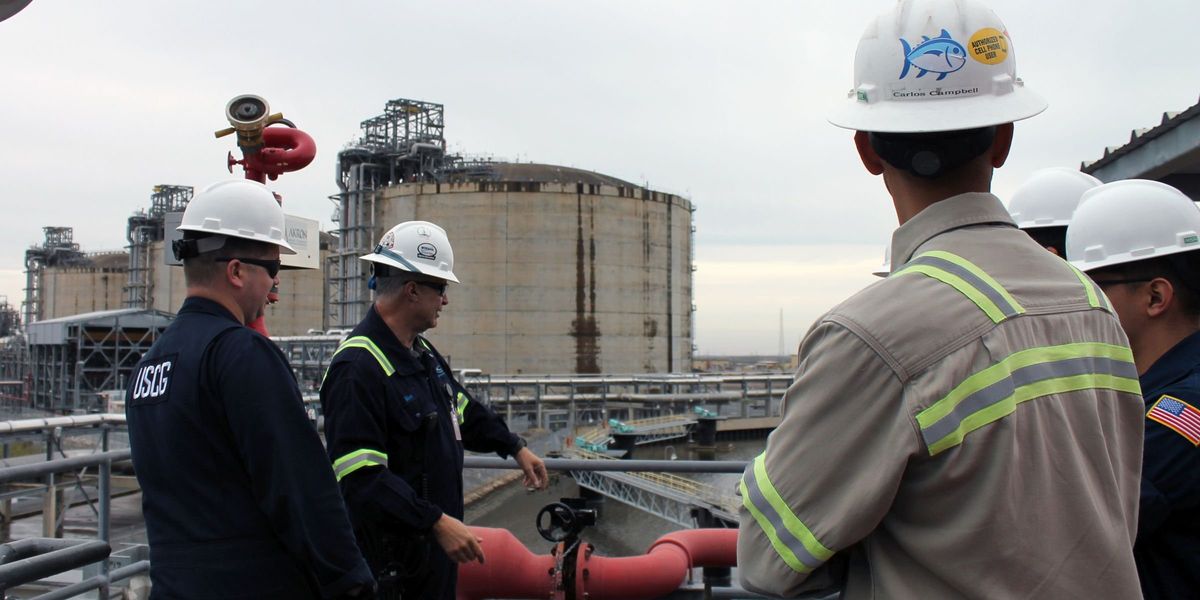
CAMERON PARISH, La. — Late into the night, John Allaire watches the facility next to his home shoot 300-foot flares from stacks.
He lives within eyesight of southwest Louisiana’s salty shores, where, for decades, he’s witnessed nearly 200 feet of land between it and his property line disappear into the sea. Two-thirds of the land was rebuilt to aid the oil and gas industry’s LNG expansion. LNG — shorthand for liquified natural gas – is natural gas that's cooled to liquid form for easier storage or transport; it equates to 1/600th the volume of natural gas in a gaseous state. It’s used to generate electricity, or fuel stove tops and home heaters, and in industrial processes like manufacturing fertilizer.
In the U.S., at least 30 new LNG terminal facilities have been constructed or proposed since 2016, according to the Oil and Gas Watch project. Louisiana and Texas’ Gulf Coast, where five facilities are already operating, will host roughly two-thirds of the new LNG terminals – meaning at least 22 Gulf Coast LNG facilities are currently under construction, were recently approved to break ground or are under further regulatory review.
Although the U.S. didn’t ship LNG until 2016, when a freight tanker left, a few miles from where Cameron Parish’s LNG plants are today, last year the country became the global leader in LNG production and export volume, leapfrogging exporters like Qatar and Australia. The EIA’s most recent annual outlook estimated that between the current year and 2050, U.S. LNG exports will increase by 152%.
And it’s changed local economic estimates: last year, retired Louisiana State University professor Loren Scott’s economic forecast last year predicted an additional $36 billion in oil and gas industry spending will boost local employment by 7% over just two years.
Allaire, 68, watches how saltwater collects where rainwater once fed the area’s diminishing coastal wetlands. “We still come down here with the kids and set out the fishing rods. It's not as nice as it used to be,” he told Environmental Health News (EHN).
That intimacy with nature drew Allaire to the area when he purchased 311 acres in 1998. An environmental engineer and 30-year oil and gas industry veteran, he helped lead environmental assessments and manage clean-ups, and although retired, he still works part-time as an environmental consultant with major petroleum companies. With a lifetime of oil and gas industry expertise, he’s watched the industry's footprint spread across Louisiana and the Gulf of Mexico’s fragile shores and beyond. Now that the footprints are at the edge of his backyard, Allaire is among a cohort of organizers, residents and fisher-folk in the region mobilizing to stop LNG facility construction. For him, the industry’s expansion usurps the right-or-wrong ethics he carried across his consulting career. For anglers, oil and gas infrastructure has destroyed fishing grounds and prevented smaller vessels from accessing the seafood-rich waters of the Calcasieu River.
From the view of Allaire’s white pickup truck as he drives across his property to the ocean’s shore, he points to where a new LNG facility will replace marshlands. Commonwealth LNG intends to clear the land of trees and then backfill the remaining low-lying field.
“You see what’s happening with the environment,” Allaire said. “When the facts change, I got to change my mind about what we’re doing.”

John Allaire, left, purchased 311 acres in Cameron Parish in 1998, and has watched the oil and gas industry's footprint spread to his property.
Credit: John Allaire
During an Earth Day rally in April, community members gathered in the urban center of Lake Charles to demand local oil and gas industries help deliver a safer, healthier future for all. In between live acts by artists performing south Louisiana’s quintessential zydeco musical style, speakers like James Hiatt, a Calcasieu Parish native with ties to Cameron Parish and a Healthy Gulf organizer, and RISE St. James organizer Sharon Lavigne, who’s fighting against LNG development in rural Plaquemines Parish near the city of New Orleans, asked the nearly 100 in attendance to imagine a day in which the skyline isn’t dotted by oil and gas infrastructure.
Not long ago, it was hard to imagine an Earth Day rally in southwest Louisiana at all. For decades, the area has been decorated with fossil fuel infrastructure. Sunsets on some days are highlighted by the chemicals in the air; at night, thousands of facilities’ lights dot the dark sky.
“It takes a lot of balls for people to start speaking up,” Shreyas Vasudevan, a campaign researcher with the Louisiana Bucket Brigade, told EHN in the days after the rally. In a region with its history and economy intertwined with oil and gas production, “you can get a lot of social criticism – or ostracization, as well – even threats to your life.”
Many are involved in local, regional and national advocacy groups, including the Louisiana Bucket Brigade, Healthy Gulf, the Sierra Club, the Natural Resources Defense Council, the Turtle Island Restoration Network, the Center for Biological Diversity and the National Audubon Society.
But environmental organizers are fighting a multi-billion-dollar industry with federal and state winds at its back. And LNG’s federal support is coupled with existing state initiatives.
Under outgoing Louisiana Gov. John Bel Edwards — a term-limited Democrat — the state pledged a goal of reaching net-zero greenhouse emissions by 2050. Natural gas, which the LNG industry markets as a cleaner-burning alternative, is cited as one of the state’s solutions. Louisiana is the only state that produces a majority of its carbon emissions through fossil fuels refining industries, like LNG, rather than energy production or transportation. Governor Edwards’ office did not return EHN’s request for comment.
This accommodating attitude towards oil and gas industries has resulted in a workforce that’s trained to work in LNG refining facilities across much of the rural Gulf region, said Steven Miles, a lawyer at Baker Botts LLP and a fellow at the Baker Institute’s Center on Energy Studies. Simultaneously, anti-industrialization pushback is lacking. It’s good news for industries like LNG.
“The bad news,” Miles added. “[LNG facilities] are all being jammed in the same areas.”
One rallying cry for opponents is local health. The Environmental Integrity Project found that LNG export terminals emit chemicals like carbon monoxide –potentially deadly– and sulfur dioxide, of which the American Lung Association says long-term exposure can lead to heart disease, cancer, and damage to internal or female reproductive organs.
An analysis of emissions monitoring reports by the advocacy group the Louisiana Bucket Brigade found that Venture Global’s existing Calcasieu Pass facility had more than 2,000 permit violations.That includes exceeding the permit’s authorized air emissions limit to release nitrogen oxides, carbon monoxide, particulate matter and volatile organic compounds 286 out of its first 343 days of operation.
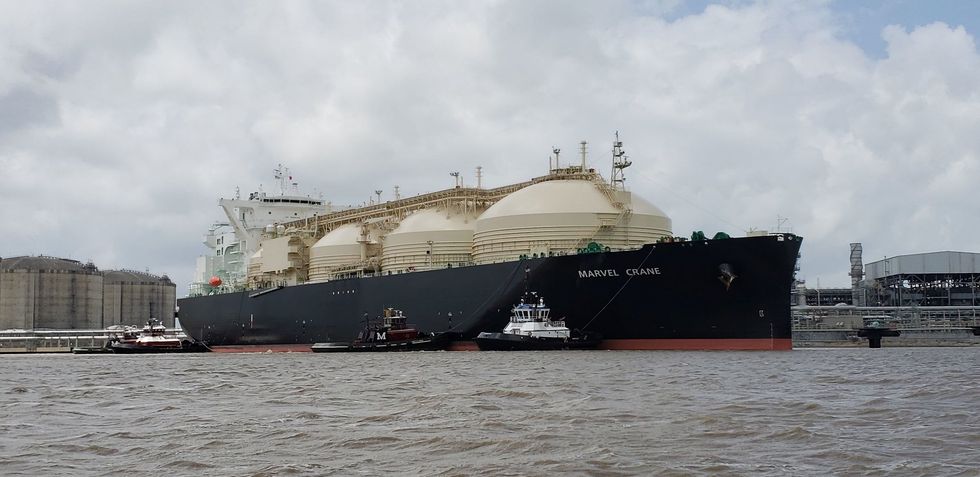
The Marvel Crane, the first liquid natural gas carrier to transport natural gas from the Southwest Louisiana LNG facility, transits a channel in Hackberry, Louisiana, May 28, 2019.
Credit: Coast Guard News
Rather than amend its infrastructure to meet regulatory standards, Venture Global is asking the state to raise its facility’s air emissions permit limits to release an additional 833% of greenhouses gasses each year, according to the Louisiana Bucket Brigade’s January report. If approved, permitted emissions would rise to roughly 4.65 million tons, making the facility the state’s fifth-largest emitter), according to a 2021 statewide greenhouse data inventory compiled by Louisiana State University’s Center for Energy Studies.
“This is just one facility,” at a time when three more facilities have been proposed in the region and state, Vasudevan said. Venture Global’s operational LNG facility — also known as Calcasieu Pass — “is much smaller than the other facility they’ve proposed.”
In an area that experienced 18 feet of storm surge during Hurricane Laura in 2020 — and just weeks later, struck by Hurricane Delta — Venture Global is planning to build a second export terminal Known as “CP2,” it’s the largest of the roughly two dozen proposed Gulf LNG export terminals, and a key focal point for the region’s local organizing effort.
Residents “don’t really want LNG as much as they want Cameron [Parish] from 1990 back,” Hiatt told EHN of locals’ nostalgia for a community before storms like Rita in 2005 brought up to 15 feet of storm surge, only for Laura to repeat the damage in 2020. Throughout that time, the parish’s population dipped from roughly 10,000 to 5,000. “But the wolf knocking at the door is LNG. Folks in Cameron think that's going to bring back community, bring back the schools, bring back this time before we had all these storms — when Cameron was pretty prosperous.”
“Clearly,” for the oil and gas industry, “the idea is to transform what was once the center of commercial fishing in Louisiana to gas exports,” Cindy Robertson, an environmental activist in southwest Louisiana, told EHN.
Helping fishers’ impacted by LNG is about “actual survival of this unique culture,” Cooke said.
In a measure of organizers’ success, she pointed to a recent permit hearing for Venture Global’s CP2 proposal. Regionally, it’s the only project that’s received an environmental permit, but not its export permit, which remains under federal review. At the meeting, some spoke on the company’s behalf. As an organizer, it was a moment of clarity, Cooke explained. Venture Global officials “had obviously done a lot of coaching and organizing and getting people together in Cameron to speak out on their behalf,” Cooke said. “So, in a way, that was bad. But in another way, it shows that we really had an impact.”
“It also shows that we have a lot to do,” Cooke added.
Environmental organizers like Alyssa Portaro describe a sense of fortitude among activists — she and her husband to the region’s nearby town of Vinton near the Texas-Louisiana border. Since the families’ relocation to their farm, Portaro has worked with Cameron Parish fisher-folk.
“I’ve not witnessed ‘community’ anywhere like there is in Louisiana,” Portaro told EHN. But a New Jersey native, she understands the toll environmental pollution has on low-income communities. “This environment, it’s so at risk — and it’s currently getting sacrificed to big industries.”
“People don’t know what we’d do without oil and gas. It comes at a big price,” she added.
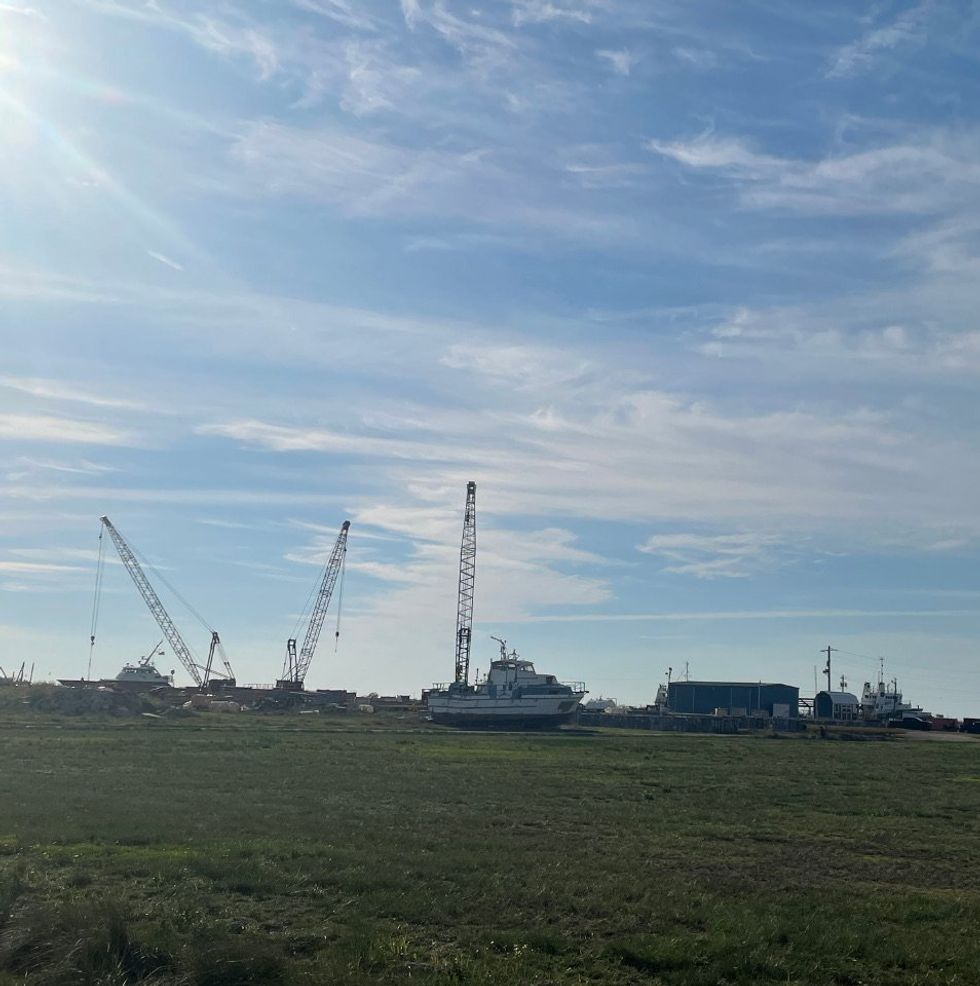
Southwest Louisiana’s Cameron Parish is one of the state’s most rural localities. Marine economies were the area’s economic drivers until natural disasters and LNG facilities began pushing locals out, commercial fishers claim.
Credit: Xander Peters for Environmental Health News

Residents “don’t really want LNG as much as they want Cameron [Parish] from 1990 back,” James Hiatt , a Healthy Gulf organizer, told EHN. "But the wolf knocking at the door is LNG."
Credit: Xander Peters for Environmental Health News
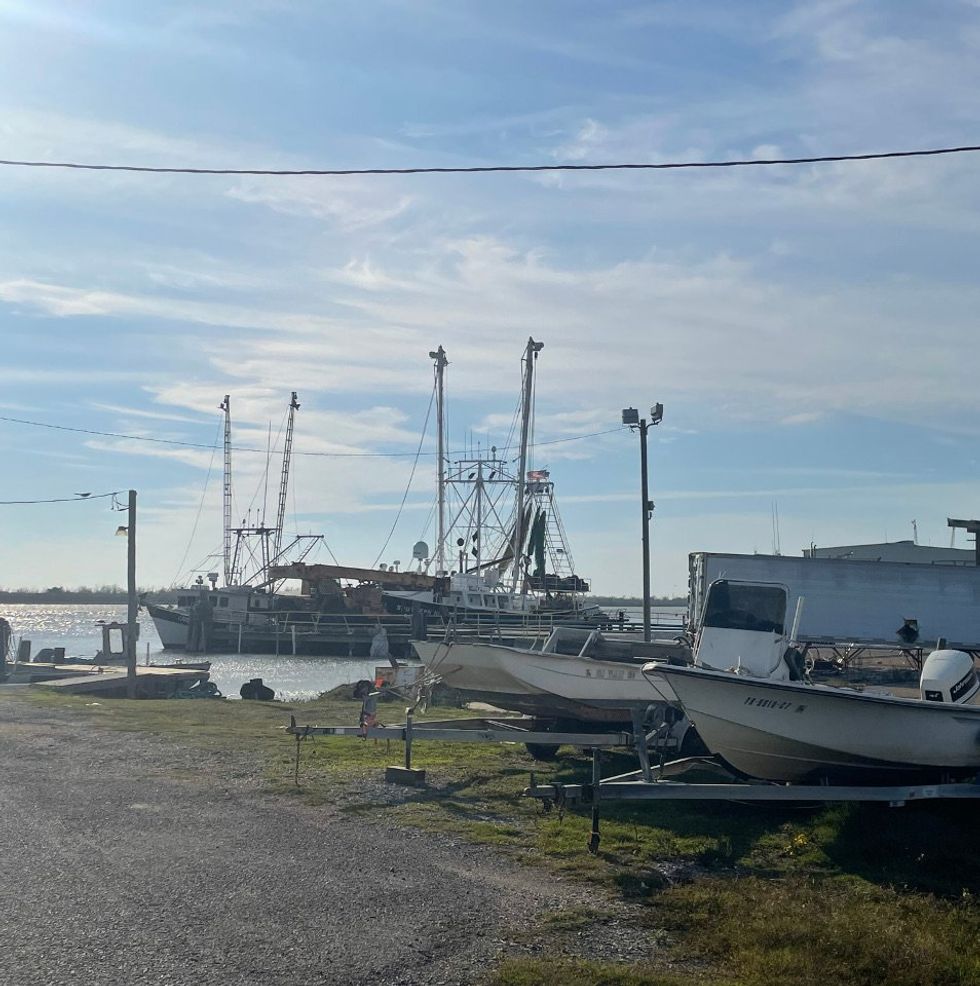
For the most part, Cameron Parish’s life and economy has historically taken place at sea. As new LNG facilities are operational or in planning locally, locals claim the community they once knew is nearly unrecognizable.
Credit: Xander Peters for Environmental Health News
The stakes are seemingly higher for a region like southwest Louisiana, which is the epicenter of climate change impacts.
In nearly a century, the state has lost roughly 2,000 square miles of land to coastal erosion. In part driving the state’s erosion crisis is the compounding impacts of Mississippi River infrastructure and oil and gas industry activity, such as dredging canals for shipping purposes, according to a March study published in the journal Nature Sustainability. Louisiana’s Coastal Protection and Restoration Authority said Cameron Parish could lose more land than other coastal parishes over the next 50 years. A recent Climate Central report says the parish will be underwater within that time frame.
On top of erosion and sea level rise impacts, in August, 2023, marshland across southwest Louisiana’s Cameron Parish burned. The fires were among at least 600 across the Bayou State this year. Statewide, roughly 60,000 acres burned — a more than six-fold increase of the state’s average acres burned per year in the past decade alone.
But while the blaze avoided coastal Louisiana communities like Cameron Parish, the fires represented a warning coming from a growing chorus of locals across the region — one that’s echoes by the local commercial fishing population, who claimed to have experienced unusually low yields during the same time, according to a statement from a local environmental group. At the site of the Cameron Parish fires are locations for two proposed LNG expansion projects.
It was an unusual occurrence for an area that’s more often itself underwater this time of year due to a storm surge from powerful storms. For LNG expansion’s local opposition, it was a red flag.
As the Louisiana Bucket Brigade has noted prior, the confluence of climate change’s raising of sea levels and the construction of LNG export terminals — some are proposed at the size of nearly 700 football fields — are wiping away the marshland folks like Allaire watched wither. Among their fears is that the future facilities won’t be able to withstand the power of another storm like Laura and its storm surge, which wiped away entire communities in 2020.
Amidst these regional climate impacts, LNG infrastructure has shown potential to exacerbate the accumulation of greenhouse gasses that cause global warming. For the most part, LNG is made up of methane — a greenhouse gas that’s more than 80 times more potent than carbon dioxide in the atmosphere. Among the 22 current LNG facility proposals, the advocacy group Sierra Club described a combined climate pollution output that would roughly equal to that of about 440 coal plants.
The climate impacts prompt some of the LNG industry’s uncertainty going forward. It isn’t clear if Asian countries, key importers of U.S. LNG, will “embrace these energy transition issues,” said David Dismuke, an energy consultant and the former executive director of Louisiana State University’s Center for Energy Studies. Likewise, European nations remain skeptical of embracing LNG as a future staple fuel source.
“They really don't want to have to pull the trigger,” Dismukes added, referring to Europe’s hesitation to commit more resources to exporting LNG from the American market. “They don't want to go down that road.”
While there will be a tapering down of natural gas supply, Miles explained, “we’re going to need natural gas for a long time,” as larger battery storage for renewables is still unavailable.
“I'm not one of these futurists that can tell you where we're going to be, but I just don't see everything being extreme,” Dismukes said. “I don't see what we've already built getting stranded and going away, either.”
For now, LNG seems here to stay. From 2012 to 2022,U.S. natural gas demand — the sum of both domestic consumption and gross exports — rose by a whopping 43%, reported the U.S. Energy Information Administration, or EIA. Meanwhile, in oil and gas hotbeds like Louisiana and Texas, natural gas demand grew by 116%.
Throughout 25 years, Allaire has witnessed southwest Louisiana’s land slowly fade, in part driven by the same industrial spread regionally. Near where the front door of his travel trailer sits underneath the aluminum awning, he points to a chenier ridge located near the end of the property. It’s disappearing, he said.
“See the sand washing over, in here?” Allaire says, as he points towards the stretches of his property. “This pond used to go down for a half mile. This is all that's left of it on this side.”
Read Part 1: LNG production comes with a price, Gulf Coast communities warn
Some funding for this reporting was also provided by the Wake Forest University Environmental and Epistemic Justice Initiative.
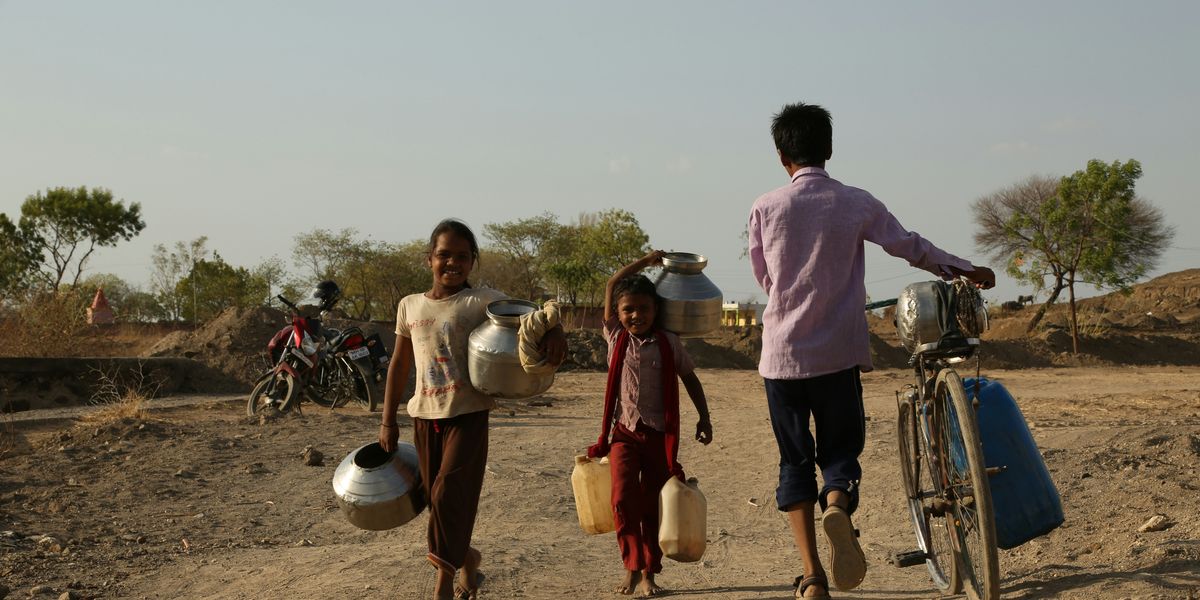
A new study reveals that by 2050, global incomes will decrease by almost 20% on average due to severe climate impacts, which will cost significantly more than proactive measures to limit temperature rises.
In short:
Key quote:
"It’s devastating... The inequality dimension was really shocking."
— Leonie Wenz, scientist at the Potsdam Institute for Climate Impact Research
Why this matters:
The study's authors note that the cost of damage from extreme weather events is six times more than what it would cost to limit warming to 2 degrees. How do we get to real solutions? John Harte, a physicist-turned-ecologist at the University of California, Berkeley, provides some answers.
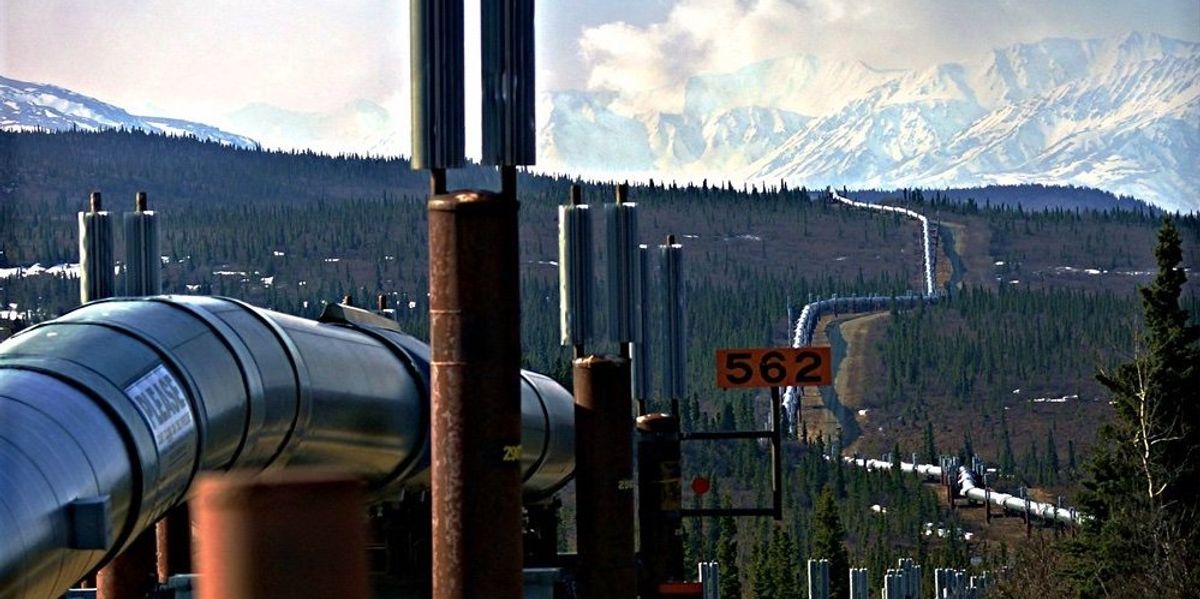
President Biden curtails fossil fuel extraction in Alaska, aiming to preserve the region's pristine habitats.
In short:
Key quote:
"Alaska's majestic and rugged lands and waters are among the most remarkable and healthy landscapes in the world, sustaining a vibrant subsistence economy for Alaska Native communities. These natural wonders demand our protection."
— President Joe Biden
Why this matters:
Biden's decision directly impacts health by safeguarding one of the most significant natural habitats, which supports not only wildlife but also the subsistence needs of local communities. Read more: Ending toxic threats to Alaska from plastics and petrochemicals.

A new rule introduced by the Biden administration aims to balance conservation with economic activities on America's public lands, enhancing protections and sustainable use.
In short:
Key quote:
"As stewards of America's public lands, the Interior Department takes seriously our role in helping bolster landscape resilience in the face of worsening climate impacts."
— Deb Haaland, U.S. Secretary of the Interior.
Why this matters:
This policy represents a strategic shift in how public lands are managed, intertwining ecological health with national economic and security interests, and addressing the urgent challenges posed by climate change. Read more from EHN's newsroom: Public lands are not neutral. We must grapple with their racist roots.
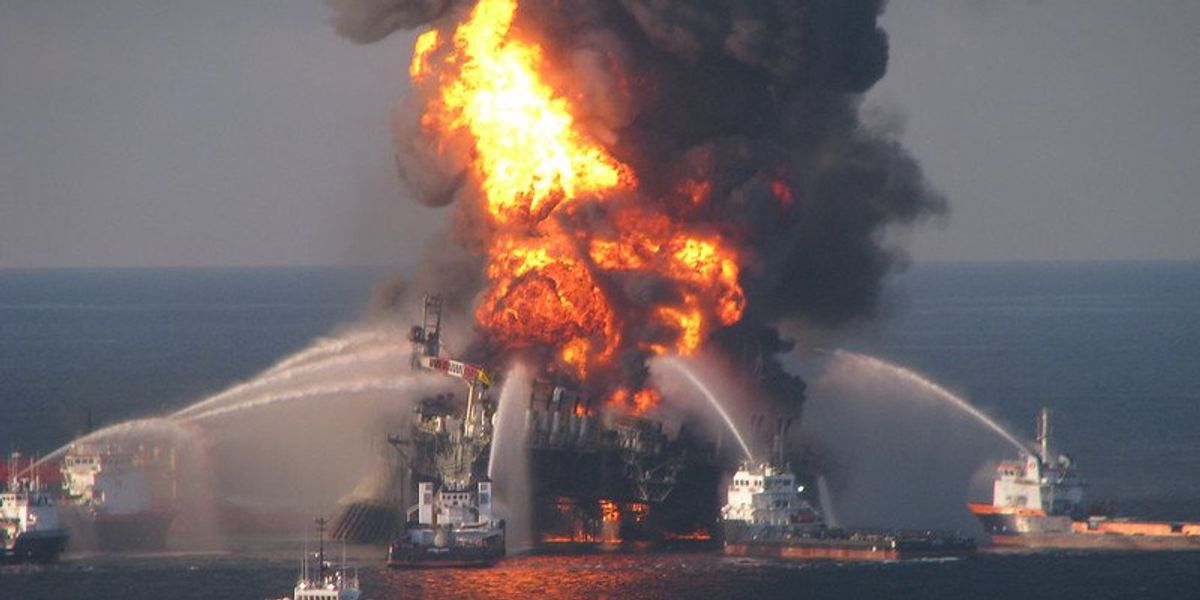
A recent expedition to the Gulf of Mexico has revealed ongoing environmental damage from the Deepwater Horizon disaster, showing little signs of recovery for the marine ecosystem.
In short:
Key quote:
"We may not actually ever see recovery,"
— Craig McClain, deep-sea biologist at the University of Louisiana at Lafayette.
Why this matters:
The persistent environmental damage highlighted by this expedition underscores the long-term impacts of oil spills on marine ecosystems. Read more: Unplugged: Abandoned oil and gas wells leave the ocean floor spewing methane.

Indigenous and local communities' firsthand experiences with climate change are vividly detailed in a new extensive study.
In short:
Key quote:
“There is the idea existing in the scientific community that local knowledge is not a valid source of knowledge, and the study aims to bridge this gap.”
— Victoria Reyes-García, research professor, Institute of Environmental Science and Technology, Universitat Autònoma de Barcelona
Why this matters:
Indigenous communities, having lived in close connection to their environments over centuries, possess deep-rooted understanding and observations of local ecosystems, weather patterns, and natural resource management. This traditional ecological knowledge can provide crucial insights that are often absent in scientific data.
Be sure to read: Colonialism, the climate crisis, and the need to center Indigenous voices.
Houston’s fenceline communities welcome stricter federal rules on chemical plant emissions but worry about state compliance.
Biodegradable food packaging is a step in the right direction, experts say, but when composted carries risks of microplastic and chemical contamination.
The US has taken a “middle of the road position” so far, environmental groups say.
EHN reporter Kristina Marusic discusses her new three-part series on the controversies surrounding chemical recycling.
Oregon’s Regenyx plant announced its closing in late February, with those involved calling it a success, despite never reaching planned capacity and millions of dollars lost.
Countries will meet this month in Ottawa to move forward on the historic treaty — but obstacles remain.